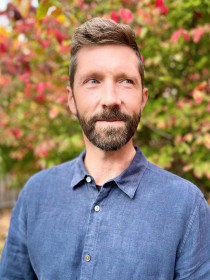
Jack Schneider
Connect with Jack
About Jack
Schneider is a historian and policy analyst who studies the influence of politics, rhetoric, culture, and information in shaping attitudes and behaviors. His work explores why particular ideas gain policy traction, how public perceptions of schools take shape, why education reform so often fails, and how organizations can use data to empower stakeholders. Along with journalist Jennifer Berkshire, he co-hosts the education policy podcast “Have You Heard."
Contributions
How (and Why) to Build a Better Measure of School Quality
No Jargon Podcast
In the News
Publications
Explains the shortcomings of our present approach to assessing student learning and why we remain beholden to grades, test scores, and transcripts. Eschewing simplistic reforms, offers a plan for transforming assessment in a manner that elevates student learning.
Shows an analysis of the predatory, profit-seeking forces that threaten our nation’s public schools. Looks at the policies—school vouchers, the war on teachers’ unions, tax credit scholarships, virtual schools, and more—driving the privatization movement’s agenda. Offers a close look at the policies—school vouchers, the war on teachers’ unions, tax credit scholarships, virtual schools, and more—driving the movement’s agenda. Makes a compelling case that, based on our current trajectory, a nightmare future is closer than we think.”
Discusses the limitations of present accountability systems and advocates for the inclusion of “ordinary measures," which have the potential to clarify the picture of schools that good governance depends on. Explains that long positioned as inferior to their formal counterparts, such measures offer much to clarify the picture of schools that good governance depends on. Shows ordinary measures, paired with deliberative evaluation processes, will improve the validity and utility of educational accountability systems.
Examines eight social and emotional outcomes (e.g., student engagement, sense of belonging), analyzing differences for students who attend racially diverse schools. Finds that racially diverse schools are associated with more positive social and emotional outcomes for all students.
Shows that student survey results introduce information about school quality that is not captured by typical accountability metrics which correlates moderately with test score growth, and are not predicted by student demographic variables. Draws on a unique set of student survey data, which we add to the state’s formula at a maximally feasible dosage in order to determine new school ratings. Finds student survey data shift school accountability ratings in small but meaningful ways and appear to enhance functional validity.
Offers a new perspective on state and federal power through an analysis of the concepts of authority and control. Illustrates that due to limitations inherent to centralized governance, state and federal offices of education exercised little control over schools across much of the twentieth century, even as they acquired considerable authority. Examines how state and federal offices have managed this dilemma through ceremonial reform, looking at two high-profile examples: the transition from No Child Left Behind to the Every Student Succeeds Act, and states’ reaction to public criticism of the Common Core State Standards.
Reframes current debates over school quality by offering new approaches to educational data that push past the unproductive fixation on test scores. Develops a new framework to more fairly and comprehensively assess educational effectiveness.
This article examines the influence of test scores and more holistic measures of school quality in shaping public understandings of familiar and unfamiliar schools.
Argues that replacing machine-scored standardized tests with teacher-rated classroom assignments and accurate grading may represent our best hope for promoting both accountability and instruction.
Argues that research is often applied when scholars know how to make their work visible to teachers, friendly to their worldview, practical for use by K-12 schools, and easy to share, but this doesn't ensure the quality or effectiveness of the research.